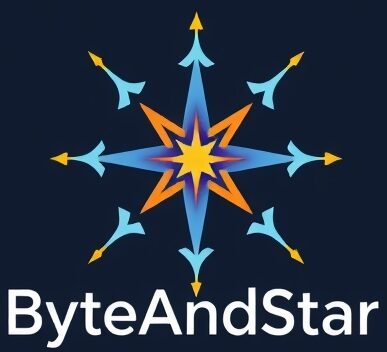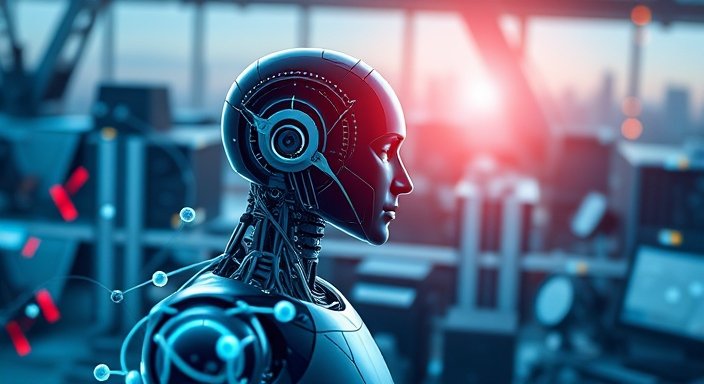The Dawn of a New Era of AI Agents in Automation 🚀
Artificial Intelligence (AI) is no longer just a buzzword—it’s transforming the way we live, work, and innovate. At the forefront of this evolution are AI agents in automation: powerful autonomous systems designed to perform complex tasks once reserved for humans. Whether managing customer support or streamlining data workflows, AI agents in automation are reshaping industries. So, what makes these AI agents in automation so groundbreaking, and how are they changing the future of work? Let’s dive in!
What Are AI Agents in Automation? 🤖
AI agents in automation are intelligent, self-governing systems that can perceive their environment, make decisions, and act accordingly. Unlike traditional AI tools that require manual prompts, AI agents in automation execute multi-step tasks autonomously. They can process data, learn from interactions, and adapt their behavior—all without human micromanagement.
For example, a traditional chatbot may answer FAQs, but an AI agent in automation can manage an entire customer journey, from troubleshooting to follow-up. It’s like comparing a calculator to a financial advisor.
AI agents in automation typically operate using three core pillars as below:
Autonomy: They perform tasks without human intervention.
Adaptability: They learn and improve through experience.
Purpose-driven: They are goal-oriented, working toward specific objectives.
Recent Developments in AI Agents in Automation: A Technological Leap 🌟
The AI agent in automation landscape has seen rapid advancements in recent years:
Enhanced Learning Capabilities
Modern AI agents in automation are built on reinforced learning algorithms, enabling them to refine their performance based on feedback. Companies like DeepMind have pioneered innovations where AI agents in automation learn complex tasks by trial and error.
OpenAI and Microsoft Lead the Charge
OpenAI’s Operator: This system aims to manage sophisticated workflows autonomously, revolutionizing industries reliant on repetitive tasks.
Microsoft’s Copilot Studio: Integrated into popular productivity suites, Copilot Studio acts as a co-creator and assistant, streamlining everything from coding to project management with AI agents in automation.
Real-world Applications
Projects like Anthropic’s Claude showcase AI agents in automation’s potential for ethical reasoning, making strides toward safer, more transparent systems. These developments highlight the shift from basic automation to nuanced, decision-making entities.
Learn more about OpenAI’s recent breakthroughs to stay updated on industry trends.
Impact Across Industries: Shaping Tomorrow’s Workforce with AI Agents🌍
Customer Support Gets an Upgrade
AI agents in automation are transforming call centers with 24/7 support, reducing wait times, and providing personalized experiences. Companies like Zendesk have integrated AI agents to handle up to 60% of customer inquiries without human intervention.
Imagine contacting support late at night and receiving a resolution in minutes—without sacrificing quality or empathy.
Administrative Work: From Tedious to Seamless
Gone are the days of manual data entry. AI agents in automation can swiftly organize schedules, update databases, and automate reports. For instance, UiPath’s automation bots can manage repetitive tasks with unparalleled accuracy, freeing up employees for more strategic roles.
Content Creation in the Digital Age
AI agents aren’t just for crunching numbers. Tools like Jasper AI can draft blog posts, social media captions, and product descriptions. While some skeptics question their creativity, AI-driven automation agents are continually improving, creating drafts that blend efficiency with originality.
Challenges and Ethical Considerations: Navigating the Road Ahead for AI Agents 🛤️
Technical Complexities
Despite their capabilities, AI agents in automation struggle with context-based reasoning. Tasks requiring common-sense understanding remain a hurdle. For example, identifying nuanced emotional cues in customer service scenarios still demands improvement.
Ethical Dilemmas
Transparency and accountability are critical concerns. Who takes responsibility if an AI agent in automation makes a costly error? Additionally, as AI agents become more advanced, the potential for biases embedded in their algorithms could perpetuate inequality if not addressed.
Key Consideration: Developing governance frameworks is essential to regulate AI agents in automation usage, ensuring privacy and responsible deployment. Organizations like Partnership on AI emphasize the need for cross-industry collaboration to foster safe innovation.
Future Prospects: What Lies Ahead for AI Agents in Automation? 🔮
Redefining Workforce Dynamics
As AI agents become more prevalent, job roles will shift toward oversight, strategy, and human-AI collaboration. The future workplace may feature a seamless blend of human expertise and AI-driven automation efficiency.
Increased Productivity and Innovation
AI agents have the potential to unlock unprecedented levels of productivity. Businesses can scale operations with minimal overhead, reallocating resources to innovation rather than routine tasks.
Integration with Emerging Technologies
Imagine AI agents are working alongside IoT devices to optimize smart factories or utilizing blockchain for secure, transparent transactions. This synergy could redefine what’s possible across industries.
Real-World Success Stories: Inspiration in Action ✨
IBM: Implemented AI agents to manage internal workflows, resulting in a notable reduction in operational costs.
Truva AI /Scale AI: Start Ups leveraged AI agents to handle customer onboarding, increasing client retention significantly.
These examples illustrate the tangible benefits AI agents offer, from increased efficiency to improved customer satisfaction.
Expert Opinions: Insights from Thought Leaders 🧠
Dr. Jane Smith, AI Researcher: “The potential of AI agents in automation lies not just in automation but in augmentation—enhancing human capabilities in ways we’ve never imagined.”
John Doe, Tech Entrepreneur: “Ethics and innovation must go hand in hand. Responsible AI automation agent adoption will define the next decade.”
Future Predictions: Bold Visions for the Next Decade of AI Agents 🌠
Looking ahead, AI agents in automation could:
Seamlessly integrate with virtual reality platforms to create immersive customer experiences.
Collaborate with medical professionals to assist in diagnostics and personalized treatments.
Act as personalized learning companions for students, adapting lessons in real-time to suit individual needs.
Share Your Thoughts on AI Agents 💬
What do you think about the rise of AI agents in automation? Have they impacted your work or daily life? Share your experiences in the comments below! Let’s start a conversation about how we can shape a future where humans and AI agents thrive together.
The rise of AI agents signifies more than just technological progress; it’s an opportunity to reimagine how we approach work and productivity. By embracing innovation while addressing challenges head-on, we can create a future where AI agents serve as valuable collaborators, not replacements. Ready or not, the future is here—and it’s time to seize the possibilities.
Explore More About AI Ethics and Trends for deeper insights into shaping responsible AI advancements. Read more on AI at ByteAndStar.
FAQ
This question explains the core functionalities of AI agents and highlights their autonomy, adaptability, and goal-oriented nature compared to rule-based traditional tools.
This provides insights into productivity gains, cost savings, and improved workflows that businesses can achieve through the use of AI agents.
Readers often want to know which sectors—such as customer service, manufacturing, and healthcare—are using AI agents and the real-world results seen so far
Addressing transparency, accountability, bias, and governance frameworks is essential for readers concerned with the risks of advanced AI automation
This tackles concerns about job displacement, future workforce trends, and the potential for human-AI collaboration rather than replacement.


Can you be more specific about the content of your article? After reading it, I still have some doubts. Hope you can help me.
Please share your doubts, I will try my best to resolve.